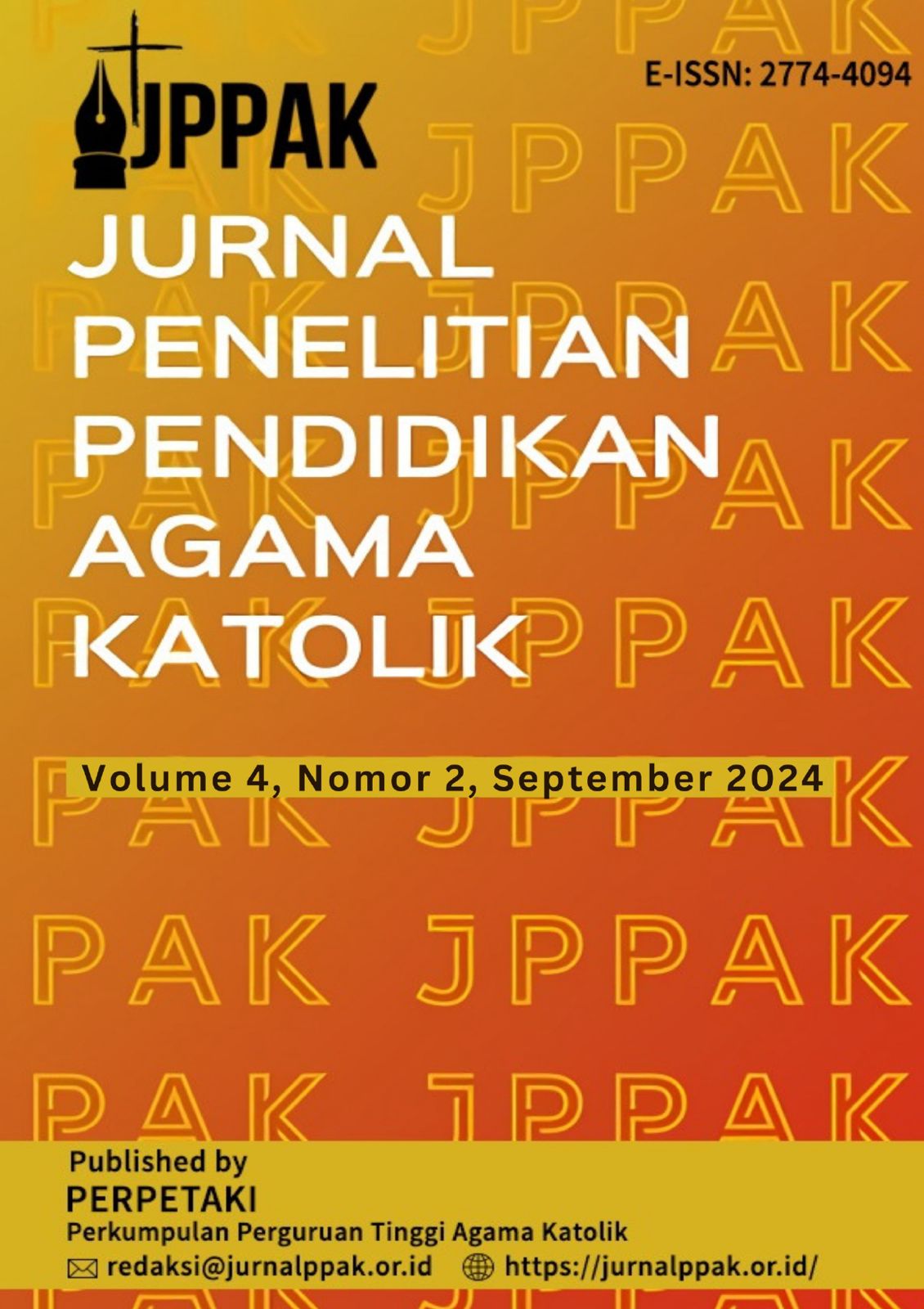Optimisasi Katekese Digital: Pemberdayaan Mahasiswa Katekis dalam Evangelisasi Baru
DOI:
https://doi.org/10.52110/jppak.v4i2.161Keywords:
Optimization, empowering, digital catechesis, new evangelizationAbstract
This research explores efforts to empower Catechist students in facing the challenges of the digital age, focusing on developing blessing skills through a digital catechesis approach. This study used qualitative methods and phenomenological approaches to involve Catechist students as the main participants. The program "Empowering Catechist Students for New Evangelization" is designed to enhance Catechist students' understanding of blessing skills, especially in the use of digital media. After engaging in the program, the results showed a significant change in the catechist students' understanding of blessing skills. Specialized training and hands-on practice with digital catechesis have had a positive impact, enabling Catechist students to be more effective in conveying the message of evangelization. This improvement in skills has also been found to contribute to the courage of Catechist students in facing communication challenges in the digital age. The conclusion of this study provides a foundation for a deeper understanding of the importance of developing blessing skills in dealing with changing contexts of religious communication. The practical implications involve improving the blessing skills training program and adjusting the catechesis curriculum to facilitate the adaptation of Catechist students to the evolving digital environment. As a result, Catechists are expected to be more effective and relevant in carrying out the mission of evangelization in this digital era.
Downloads
##submission.downloads##
Submitted
Accepted
Published
How to Cite
Issue
Section
License
Copyright (c) 2024 Emmeria Tarihoran, Antonius Denny Firmato

This work is licensed under a Creative Commons Attribution-ShareAlike 4.0 International License.
Copyright Notice and Permissions
Jurnal Penelitian Pendidikan Agama Katolik offers immediate open access to all its content on the principle to make researches freely available to the public, especially to the scholars, to support greater global exchanges of knowledge. This journal encourages all scholarly authors to allow their research openly available, free access and without time restrictions.
All articles published Open Access will be immediately and permanently free for everyone to read and download. Under the CC BY-SA 4.0 license, authors retain ownership of the copyright for their article, however authors grant others permission to use the content of publications in Jurnal Penelitian Pendidikan Agama Katolik (JPPAK) in whole or in part provided that the original work is properly cited. Users (redistributors) of Jurnal Penelitian Pendidikan Agama Katolik (JPPAK) are required to cite the original source by including at least: the full title of the article, the author's or authors' full name(s), JPPAK as the initial source of publication, year of publication and volume number using a propriate citing method.
Copyright encompasses exclusive rights to reproduce and deliver the article in all form and media, including reprints, photographs, microfilms and any other similar reproductions, as well as translations. The reproduction of any part of this journal, its storage in databases and its transmission by any form or media, such as electronic, electrostatic and mechanical copies, photocopies, recordings, magnetic media is prohibited without consent of Jurnal Penelitian Pendidikan Agama Katolik (JPPAK).
Jurnal Penelitian Pendidikan Agama Katolik (JPPAK) is licensed under a Creative Commons Attribution Share-Alike 4.0 International. (CC BY-SA 4.0)
Authors who publish with Jurnal Penelitian Pendidikan Agama Katolik (JPPAK) agree to the following terms:
- Authors retain copyright and grant the journal right of first publication with the work simultaneously licensed under a Creative Commons Attribution Share-Alike 4.0 International (CC BY-SA 4.0) license that allows others to share the work with an acknowledgement of the work's authorship and initial publication in this journal.
- Authors are able to enter into separate, additional contractual arrangements for the non-exclusive distribution of the journal's published version of the work (e.g., post it to an institutional repository or publish it in a book), with an acknowledgement of its initial publication in this journal.
- Authors are permitted and encouraged to post their work online (e.g., in institutional repositories or on their website) after the publication on JPPAK, as long as it not published on other OJS for it will be treated as plagiarism by plagiarism checker apps. It can lead to productive exchanges, as well as earlier and greater citation of published work (See The Effect of Open Access).












